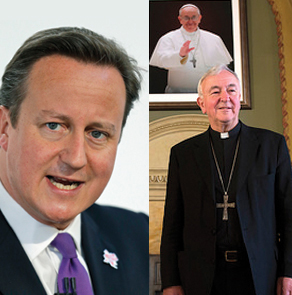Australia's upper house of Parliament, the Senate, has rejected an attempt by the Greens to remove the Lord's Prayer from the start of each day's sitting.
Victorian Greens Senator Richard Di Natale moved on 13 February that the prayer be replaced with the following words: "Senators, let us in silence pray or reflect upon our responsibilities to the people of Australia, to the states and territories which we represent, and to all future generations."
But the 76-member Senate overwhelmingly rejected the move when Senators from the governing Liberal-National coalition and the Opposition Labor Party failed to support the motion.
Senator Di Natale, who had described the prayer as "an anachronism", told Parliament that Australia had a clear separation between Church and state.
"We live in a country of many different faiths – in fact, a country where many people have no faith – and a modern Australian parliament should reflect that," he said. "We do say that there should be some opportunity for reflection or, indeed, prayer, if people feel that way, and that is why we would like to see a minute at the start of each day in this place being offered for that reason."
The Government's upper house leader, Senator Eric Abetz of Tasmania, said the move was "the latest Green attack as part of their ongoing attempt to rewrite our history and deny our heritage", while Queensland Labor Senator Claire Moore said her party did not support the motion because the place of the Lord's Prayer was part of a review already being conducted by the Senate's Procedure Committee.
A petition from the Presbyterian Church of Australia in 1901, the year the six Australian colonies formed a federation, led to the inclusion of a prayer at the commencement of each sitting day.
The Senate President precedes the Lord's Prayer with the words "Almighty God, we humbly beseech Thee to vouchsafe Thy special blessing upon this Parliament, and that Thou wouldst be pleased to direct and prosper the work of Thy servants to the advancement of Thy glory, and to the true welfare of the people of Australia" and since 2010 has made an Acknowledgement of Country, now widely used in Australian gatherings, recognising the traditional Aboriginal custodians of the land where the gathering is held and paying respect to the elders, past and present, of all Australia's indigenous peoples.


 Loading ...
Loading ...